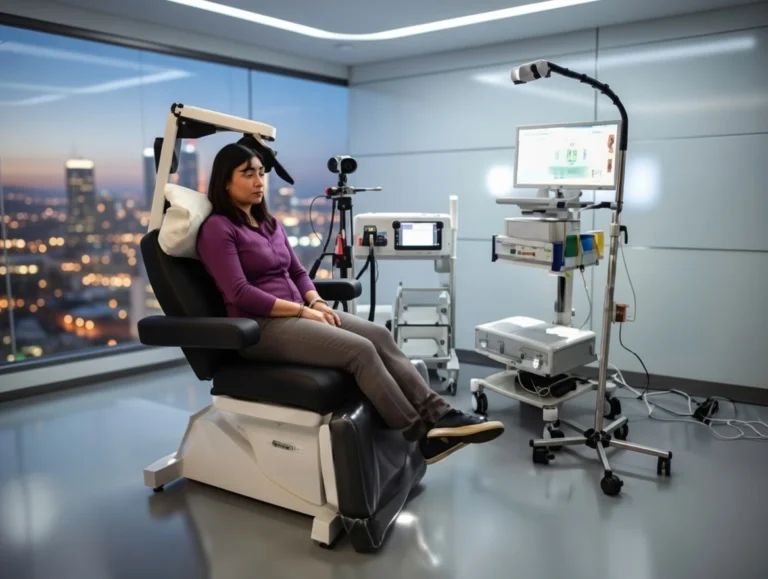
SetPoint Medical, a clinical-stage healthcare company dedicated to patients with chronic autoimmune diseases, today announced the publication of data from a multicenter European clinical trial evaluating the safety and efficacy of neuroimmune modulation in patients with treatment-refractory Crohn’s disease in the Journal of Crohn’s and Colitis. The pilot study demonstrated that neuroimmune modulation via vagus nerve stimulation resulted in a clinically meaningful reduction in disease activity and improved quality of life.
“Crohn’s disease is a debilitating inflammatory condition affecting the gastrointestinal tract. There is no cure, and the majority of patients fail to obtain sustained clinical and endoscopic remission with current immunosuppressive therapies,” said Stephen B. Hanauer, MD, a co-author and Clifford Joseph Barborka Professor of Medicine and Medical Director of the Digestive Health Center at Northwestern University’s Feinberg School of Medicine. “Activating the immunoregulatory functions of the vagus nerve through electrical stimulation has shown encouraging results in patients with other autoimmune conditions including rheumatoid arthritis and may offer a promising new way to treat inflammatory bowel disease.”
“The objective of this open-label study was to explore the safety and efficacy of vagus nerve stimulation in patients who were inadequate responders to biologic therapy for Crohn’s disease,” said Geert D’Haens, MD, PhD, principal investigator of the study and Professor of Gastroenterology at the Amsterdam University Medical Centers. “The results of this 16-week open-label trial determined that device implantation and electrical stimulation of the vagus nerve were generally safe, well tolerated, and improved clinical disease activity in Crohn’s disease patients, even those who had previously failed multiple biological drugs.”
During this open-label pilot study, 16 patients were treated with vagus nerve stimulation at study centers across four European countries. Endpoints included clinical improvement, patient-reported outcomes, objective measures of inflammation (endoscopic and molecular), and safety.
Published clinical findings demonstrated the following:
- Statistically significant and clinically meaningful decrease in Crohn’s Disease Activity Index (CDAI) at week 16 with a mean±SD of -86.2±92.8 (p=0.003) from baseline, with more than half of all patients achieving a CDAI-100 clinical response;
- Significant decrease in fecal calprotectin, a biomarker of inflammation in the gastrointestinal tract, of 63% from baseline;
- Decrease in mucosal inflammation in 11 of the 15 patients with paired endoscopies with significant decreases in endoscopic colonic disease in clinical responders;
- Decrease in serum TNF and IFN-γ of 46-52% from baseline;
- Two quality-of-life indices improved in 7 of the 11 patients treated without biologics.
“We are committed to advancing the potential of neuroimmune modulation for patients suffering from various chronic autoimmune conditions,” said Murthy V. Simhambhatla, Ph.D., president and CEO of SetPoint Medical. “The results from this Crohn’s disease study build on the growing evidence supporting the potential of neuroimmune modulation as a treatment alternative for millions of patients suffering from debilitating conditions like rheumatoid arthritis, inflammatory bowel disease, and multiple sclerosis.”
SetPoint Medical is also studying the safety and effectiveness of its investigational neuroimmune modulation device in patients with rheumatoid arthritis (RA) who have an incomplete response to, or are intolerant to, biologic drugs in the ongoing RESET-RA study.
Source link : https://www.businesswire.com/




